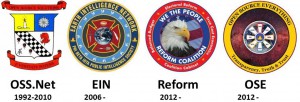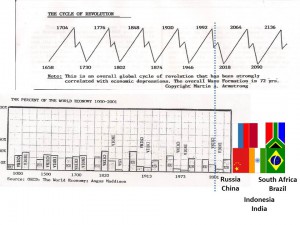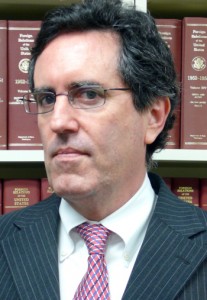
Continue reading “2012 From Open Source Intelligence to Open Source Everything”

Continue reading “2012 From Open Source Intelligence to Open Source Everything”

Source (Flags Added) . Graphic in Printable Slide Form: Economic Cycles

A Jaw-Dropping Explanation of How Governments Are Complicit in the Illegal Drug Trade
The drug war is far, far more than just simply criminals at work, says scholar Oliver Villar.
Note: The following interview helps us understand the drug war from a dramatically different perspective than the one the corporate media paints. Instead the traditional portrayal of the war on drugs as a fight between law enforcement and illicit drug dealers, scholar Oliver Villar explains that the illegal drug trade is a tool of empire a means of “social control” as much as profit. Villar, a lecturer in politics at Charles Sturt University in Bathurst, Australia's insight is well worth the read.
EXTRACT:
LS: Catherine Austin Fitts, a former investment banker from Wall Street, shared this observation once with me:
Essentially, I would say the governments run the drug trade, but they're not the ultimate power, they're just one part, if you will, of managing the operations. Nobody can run a drug business, unless
the banks will do their transactions and handle their money. If you want to understand who controls the drug trade in a place, you need to ask yourself who is it that has to accept to manage the transactions and to manage the capital, and that will lead you to the answer who's in control. [2]
What are your thoughts on this essential equation?
Continue reading “Owl: Drugs of War – The Imperial Trade, Banks on Top”

Huh?
James H. Fetzer: Mossad Played a Crucial Role in 9/11 Attacks
Interview with James H. Fetzer
By: Kourosh Ziabari
EXTRACT
The key players in relation to 9/11 were the neo-conservatives in the Department of Defense and the Israeli Mossad. Philip Zelikow, Executive Director of the 9/11 Commission, for example, had as his area of academic specialization before entering government the creation and maintenance of public myths, M-Y-T-H-S, which is what he gave us in the 9/11 Commission Report. As Elias Davidsson has shown, the government has never shown that the alleged hijackers were abroad any of those planes. As David Ray Griffin and A.K. Dewdney have shown, all of the alleged phone calls from those planes were faked. As Col. George Nelson, USAF (ret.), has observed, although there were millions of uniquely identifiable pieces from those four aircrafts, the government has yet to produce even one! Neither the FBI nor the NTSB even investigated those “crashes,” claiming that it wasn’t necessary because “we saw what happened on television”. But it was all a fraud.
Continue reading “Mini-Me: From 9/11 to Arab Spring to Iran War — Who, Exactly? + Meta-RECAP”
![]() Why algorithms need humans to predict the weather
Why algorithms need humans to predict the weather
Mari Silbey | September 11, 2012
History is rich with intellectuals who have revered theories of determinism; ideas that suggest if we could only know every facet of a situation, every molecule of the landscape, we could predict and even shape future political, economic, and cultural outcomes.
But when it comes to the weather, forecasters long ago gave up any hope of cataloging all of the variables that could impact rainfall in Seattle, or the arrival of a cold front in New York. At least that’s what Nate Silver reports in his new book, The Signal and the Noise: Why So Many Predictions Fail — but Some Don’t, an excerpt of which was adapted for a recent article in The New York Times Magazine.
Continue reading “SmartPlanet: Why algorithms need humans to predict the weather”

Greg Palast on How the GOP Is Planning to Steal the 2012 Election
Wednesday, 12 September 2012 14:32
By Mark Karlin, Truthout | Interview
Greg Palast is back with a timely new book, Billionaires & Ballot Bandits: How to Steal an Election in 9 Easy Steps. In the book, which is illustrated by Ted Rall and with an introduction by Robert F. Kennedy Jr., Palast warns of more than a decade of Republican elections theft – and explains how they do it. Make a minimum donation to support Truthout and receive a copy of the book – and you'll also get Palast's “Why We Occupy” DVD free, which includes a Palast talk, a rant by Lee Camp, and a variety of other video segments.
Mark Karlin: The Republicans don't just aim to steal elections in one way. They have a variety of methods to mug democracy. Can you explain a few of them?

AN ARMY INTRODUCTION TO OPEN SOURCE INTELLIGENCE
A new U.S. Army publication provides an introduction to open source intelligence, as understood and practiced by the Army.
“Open-source intelligence is the intelligence discipline that pertains to intelligence produced from publicly available information that is collected, exploited, and disseminated in a timely manner to an appropriate audience for the purpose of addressing a specific intelligence and information requirement,” the document says.
“The world is being reinvented by open sources. Publicly available information can be used by a variety of individuals to [achieve] a broad spectrum of objectives. The significance and relevance of open-source intelligence (OSINT) serve as an economy of force, provide an additional leverage capability, and cue technical or classified assets to refine and validate both information and intelligence.”
See “Open-Source Intelligence,” Army Techniques Publication (ATP) 2-22.9, July 2012.
The new manual is evidently intended for soldiers in the field rather than professional analysts, and it takes nothing for granted. At some points, the guidance that it offers is remedial rather than state of the art.
For example, “if looking for information about Russian and Chinese tank sales to Iraq, do not use ‘tank' as the only keyword in the search. Instead, use additional defining words such as ‘Russian Chinese tank sales Iraq'.”
But the manual reflects the ongoing maturation of open source intelligence (OSINT), and it contains several observations of interest.
“The reliance on classified databases has often left Soldiers uninformed and ill-prepared to capitalize on the huge reservoir of unclassified information from publicly available information and open sources,” the manual states.